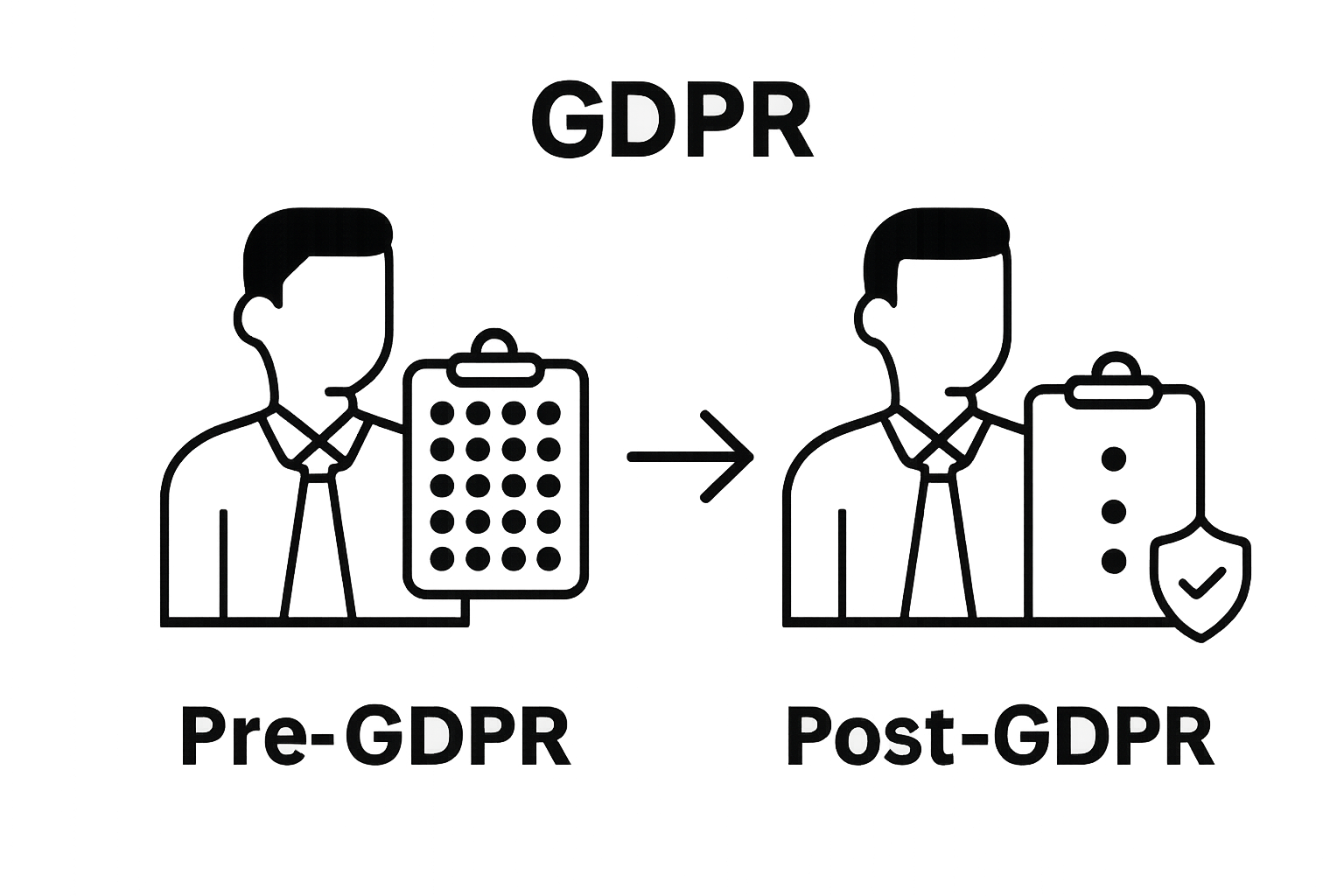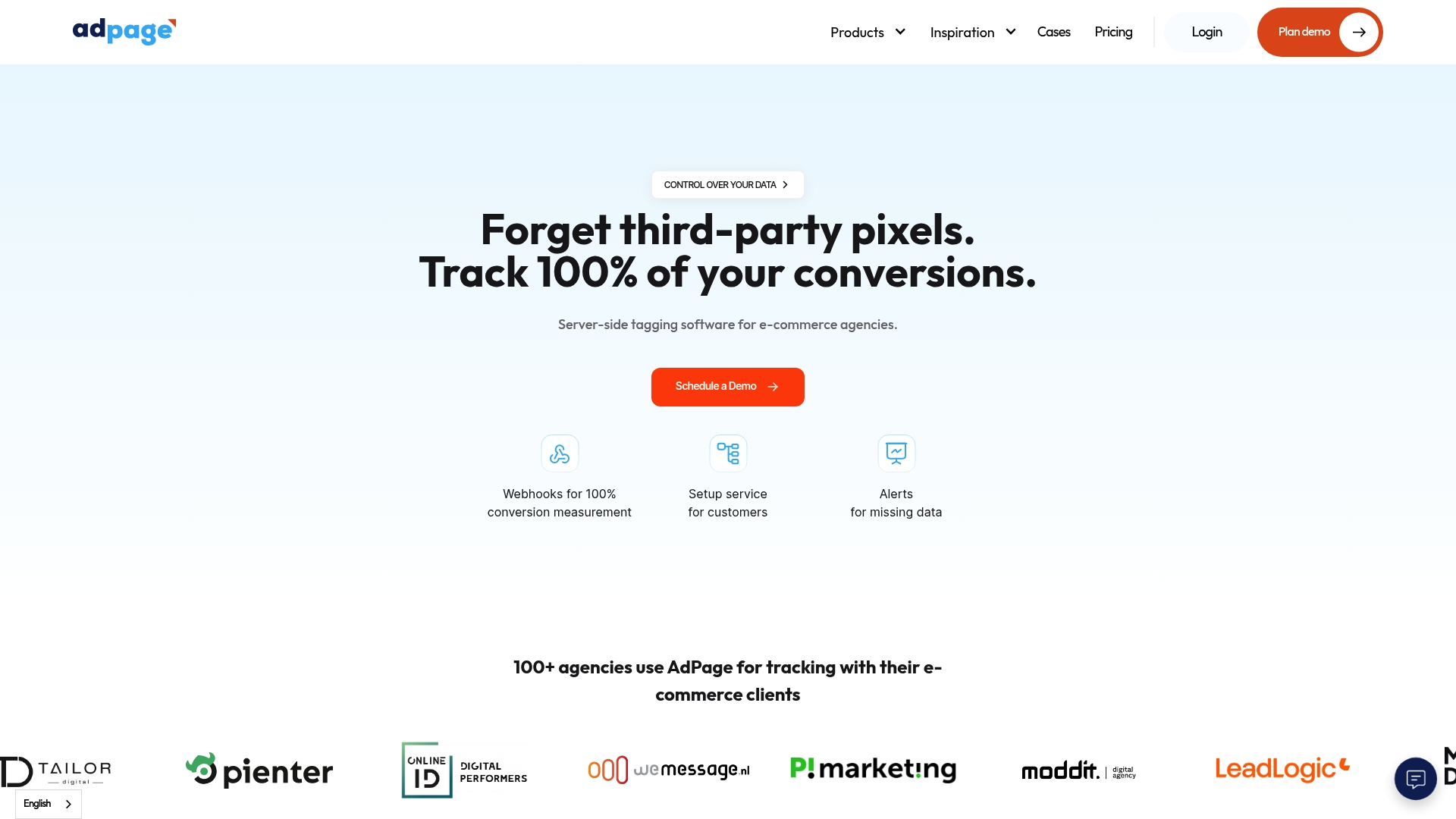GDPR might sound like just another dry legal rule, but its impact on the way companies handle your online data is massive. Website pageviews dropped by about 12% and e-commerce revenue tumbled when these privacy laws landed. You might expect this would stop businesses from collecting data altogether. Instead, it has triggered smarter and even more transparent ways to gather information, turning what seemed like a business nightmare into the start of a new era for analytics.
Table of Contents
- What Is GDPR And Its Relevance To Analytics?
- Why GDPR Matters: Implications For Data Collection.
- How GDPR Changes The Analytical Landscape.
- Key Concepts Of Compliance In Analytics Post-GDPR
- Real-World Examples Of GDPR In Analytics Practices
Quick Summary
| Takeaway | Explanation |
|---|---|
| Obtain explicit user consent | Organizations must ensure users give informed permission before collecting personal data. |
| Implement consent management systems | Businesses should develop platforms to manage user consent transparently and effectively. |
| Adopt privacy-first analytics models | Companies need to redesign data strategies to prioritize user privacy while gaining insights. |
| Utilize server-side tracking solutions | Privacy-compliant analytics now require advanced technical infrastructure for effective data management. |
| Maintain comprehensive documentation | Organizations must document all data processing activities to ensure GDPR compliance. |
What is GDPR and its Relevance to Analytics?
The General Data Protection Regulation (GDPR) represents a landmark legal framework designed to protect individual privacy and transform how organizations manage personal data. Implemented by the European Union in May 2018, this comprehensive regulation fundamentally reshaped digital data practices worldwide, with profound implications for analytics professionals and businesses collecting user information.
Understanding GDPR's Core Principles
At its essence, GDPR establishes strict guidelines for data processing, prioritizing individual rights and transparency. The regulation mandates that organisations must obtain explicit consent before collecting and utilising personal data, ensuring users understand precisely how their information will be used. According to Warwick Business School, these privacy protections can paradoxically lead to more sophisticated data-sharing practices.
Key principles of GDPR include:
- Lawful and Transparent Processing: Organizations must clearly communicate data collection purposes
- Data Minimisation: Only collect information directly necessary for specified purposes
- Individual Consent: Explicit permission required before data collection
Impact on Digital Analytics
For analytics professionals, GDPR introduces significant operational challenges. Traditional tracking methods become substantially more complex, requiring robust consent management systems and comprehensive documentation of data processing activities. Businesses must now design analytics strategies that respect individual privacy while maintaining meaningful insights.
Analytics teams must now implement server-side tracking solutions that prioritize user privacy, read more about tracking systems, ensuring compliance with stringent data protection requirements. This shift demands advanced technical capabilities and a nuanced understanding of privacy regulations.
Why GDPR Matters: Implications for Data Collection.
GDPR represents a transformative approach to digital privacy, fundamentally challenging traditional data collection practices. By prioritizing individual rights and establishing stringent data protection standards, the regulation compels organizations to rethink their approach to user information gathering and processing.
Economic and Regulatory Consequences.
The economic implications of GDPR are profound and far-reaching. According to Stanford Graduate School of Business research, the regulation can significantly impact online business performance. The study revealed approximately a 12% reduction in website pageviews and e-commerce revenue among EU users, highlighting the substantial economic consequences of strict data protection measures.
Key economic implications include:
- Potential revenue reductions for businesses unable to adapt quickly
- Increased compliance costs for implementing robust data management systems
- Reduced effectiveness of traditional marketing and tracking strategies
Transforming Data Collection Practices.
GDPR fundamentally reshapes how organisations approach data collection and user consent. Businesses must now implement comprehensive consent management strategies that provide users with transparent, granular control over their personal information. This shift demands more sophisticated technical infrastructure and a user-centric approach to data processing.

The regulation necessitates organizations develop mechanisms that:
- Obtain explicit, informed consent before data collection
- Allow users to withdraw consent easily
- Provide clear explanations of data usage purposes
By mandating these practices, GDPR aims to restore individual agency in an increasingly data-driven digital ecosystem, compelling businesses to balance analytical insights with robust privacy protections.
How GDPR Changes the Analytical Landscape.
The General Data Protection Regulation fundamentally disrupts traditional analytical methodologies, compelling organizations to reimagine their approach to data collection, processing, and insights generation. This transformative regulatory framework challenges long-established tracking practices and demands sophisticated, privacy-respecting analytical strategies.
Redefining Data Collection Strategies.
Under GDPR, organizations must adopt a consent-first approach to data analytics. According to European Commission guidelines, data collection now requires explicit, informed user permission, dramatically altering how businesses gather and leverage user information. Analytics teams must implement granular consent mechanisms that provide users with unprecedented control over their personal data.
Key transformations in data collection include:
- Mandatory transparent communication about data usage
- Requirement for clear, unambiguous user consent
- Ability for users to withdraw consent at any time
Technical Implications for Analytics Professionals
Analytics professionals must now integrate privacy considerations directly into their technical infrastructure. Challenges in tracking systems have become more complex, necessitating advanced server-side tracking solutions that prioritize user privacy while maintaining meaningful analytical insights.
Critical technical adaptations include:
- Implementing server-side anonymization techniques
- Developing robust consent management platforms
- Creating flexible data processing architectures that respect user preferences
By mandating these comprehensive changes, GDPR compels organizations to view data privacy not as a compliance burden, but as a fundamental aspect of ethical and effective digital analytics.
Key Concepts of Compliance in Analytics Post-GDPR
Compliance with GDPR represents a comprehensive transformation of data management practices, requiring organizations to adopt a holistic approach to user privacy and data protection. This regulatory framework demands more than mere procedural adjustments, compelling businesses to fundamentally reimagine their analytical strategies.
Legal and Ethical Foundations of Compliance
The core of GDPR compliance centers on establishing transparent, accountable data processing mechanisms. According to research from the University of Edinburgh, the regulation has led to significant reductions in privacy-invasive tracking mechanisms, with approximately 14.79% decrease in trackers that collect and share personal data.
Fundamental compliance principles include:
- Implementing robust data protection governance
- Ensuring demonstrable consent mechanisms
- Maintaining comprehensive documentation of data processing activities
Technical Infrastructure for Regulatory Adherence.
Organizations must redesign their technical infrastructure to support privacy-first analytics. Understanding user data privacy becomes critical in developing compliant tracking systems that balance analytical insights with individual privacy rights.
Key technical compliance requirements encompass:
- Server-side data anonymization techniques
- Advanced consent management platforms
- Real-time data access and deletion capabilities
By embedding privacy considerations directly into analytical workflows, businesses can transform regulatory compliance from a potential burden into a strategic advantage, demonstrating commitment to ethical data practices.
Real-World Examples of GDPR in Analytics Practices
The implementation of GDPR has profoundly transformed how organizations approach data analytics, compelling businesses across various sectors to fundamentally redesign their data collection and processing strategies. These practical applications demonstrate the regulation's far-reaching impact on digital ecosystems.
Economic and Operational Transformations
According to comprehensive research from academic studies, the economic implications of GDPR are substantial. Analyzing data from 6,286 websites across 24 industries revealed significant shifts in digital engagement. Businesses experienced an average 4.9% decrease in website visits in the short term, escalating to a 10% reduction in the long term, translating to estimated revenue losses of $7 million for e-commerce platforms and $2.5 million for advertising-based websites.
Key economic adaptations include:
- Implementing more transparent data collection processes
- Developing granular consent management systems
- Redesigning marketing and analytics strategies
Practical Compliance Strategies
Organizations have responded to GDPR by developing innovative approaches to data analytics. Understanding user data collection has become crucial in navigating the complex landscape of privacy regulations. Businesses now prioritize privacy-first analytics models that balance insightful data gathering with robust user protection mechanisms.
Practical implementation strategies encompass:
- Creating comprehensive user consent dashboards
- Developing server-side anonymization technologies
- Establishing clear data retention and deletion protocols
These real-world examples illustrate how GDPR has transformed data analytics from a purely extractive practice to a more ethical, user-centric approach that respects individual privacy while maintaining valuable business insights.
The table below summarizes key economic and operational statistics encountered by businesses post-GDPR, organizing specific research findings for a clearer understanding of GDPR's business impact.
| Metric | Value/Percentage | Source/Context |
|---|---|---|
| Website pageview drop | Approx. 12% | After GDPR implementation among EU users |
| E-commerce revenue reduction | Approx. 12% | Correlated with GDPR's effect on online business models |
| Tracker reduction | 14.79% | Decrease in privacy-invasive tracking mechanisms (University of Edinburgh research) |
| Short-term website visit decrease | 4.9% | Observed after GDPR across 6,286 websites in 24 industries |
| Long-term website visit decrease | 10% | Ongoing reduction due to GDPR as per comprehensive academic study |
| E-commerce estimated revenue loss | $7 million | Impact of GDPR on e-commerce platforms (long-term, study estimate) |
| Advertising website revenue loss | $2.5 million | Estimated impact on advertising-based sites (long-term, study estimate) |

Take Control of GDPR-Compliant Analytics and Unleash Hidden Conversions
Navigating the world of analytics after GDPR can feel overwhelming for marketing teams and e-commerce businesses. You want to extract valuable insights but face tough requirements around user consent, privacy-first data collection, and the risk of losing conversions to incomplete tracking. The demand for server-side tracking, robust consent management, and proven compliance has never been greater.

Unlock reliable conversion data with AdPage and leave guesswork behind. Our platform empowers you to monitor every conversion using advanced server-side tagging designed specifically for GDPR compliance. Whether you use Shopify, WooCommerce, or Magento, you can seamlessly integrate consent management and maintain full oversight of user permissions. Ready to see how our server-side tagging solutions can protect your analytics and strengthen your business? Experience total privacy compliance and drive better results for your clients. Visit AdPage now and transform your data strategy before the next wave of privacy changes takes hold.
Frequently Asked Questions
What is GDPR and why is it important for analytics?
GDPR, or the General Data Protection Regulation, is a comprehensive legal framework established by the European Union to protect individual privacy. It is important for analytics as it mandates that organisations obtain explicit consent from users before collecting and using their personal data, fundamentally altering data handling practices in analytics.
How does GDPR affect data collection methods in analytics?
GDPR requires organisations to adopt a consent-first approach to data collection, meaning businesses must transparently communicate their data usage and obtain clear, informed consent from users before processing any personal data. This change has made traditional tracking methods more complex and requires robust data management systems.
What are the implications of GDPR for data privacy in analytics?
GDPR has significant implications for data privacy in analytics as it emphasizes user rights and the protection of personal information. Organizations must ensure they implement transparent data processing practices, allowing users to control their data and withdraw consent easily, which challenges existing analytical methodologies.
How can analytics professionals ensure compliance with GDPR?
Analytics professionals can ensure compliance with GDPR by integrating privacy considerations into their technical infrastructure. This includes implementing server-side tracking solutions, developing comprehensive consent management platforms, and maintaining detailed documentation of data processing activities.



.png)
